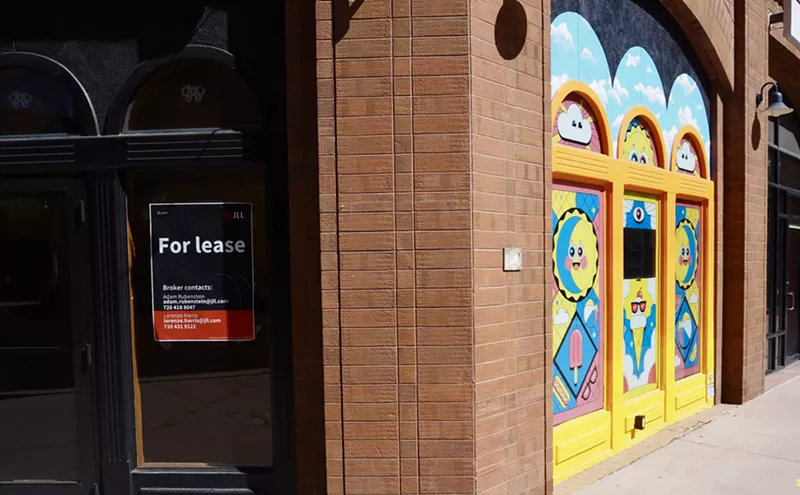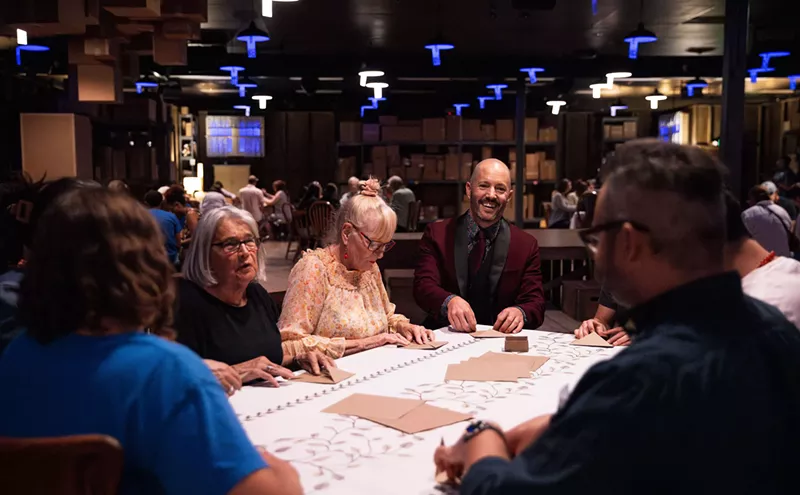Coloradans want to have better sex, at least according to one recently published study by Emilsi. The report set out to find out which states were most interested in improving their sex lives, ultimately placing Colorado third on the list, only behind Illinois (#1) and Nevada (#2).
The rankings were determined from a composite score of data from online searches like “libido supplements” and “how to last longer in bed,” the number of sex therapists on LinkedIn, and marriage and divorce rates in each state. Notably, Colorado topped the charts for monthly searches for “new sex positions,” and also has the most sex therapists per capita of any other state.
So what’s the deal? Are Coloradans not sexually satisfied? Or, perhaps, they’re more open to erotic exploration?
Behind Closed Doors
“Our practice is fairly balanced between couples and individual therapy," explains Dr. Neil Cannon, a veteran sex therapist based in Cherry Creek. His group practice, The Cannon Institute, sees over a thousand clients a month across Colorado, both in-person and virtually, specializing in a range of areas like erectile difficulties, delayed or premature ejaculation, female pelvic pain conditions, BDSM, ethical non-monogamy, out-of-control sexual behavior (sex addiction), gender identity and more.
"The most common issue we address is sexual desire discrepancy, where one partner has a higher sex drive than the other,” Cannon says.
Couples with mismatched libidos aren’t unique to Colorado, though. “At one point, we did an informal survey with therapists from around the world on the AASECT (American Association of Sexuality Educators, Counselors and Therapists) listserv about the most common concerns they see in their clients. The general consensus was that about 40 percent of all sex therapy cases involve some form of sexual desire discrepancy,” Cannon adds.
In addition to imbalanced sex drives, sexual desire discrepancy could also involve different preferences, i.e., one partner might be kinky while the other isn’t, or one might identify as polyamorous while the other doesn’t.
Just What the Doctor Ordered
Colorado certainly isn’t the only place where people experience intimacy issues, so why is there such a large demand for sex therapy?
“Before founding The Cannon Institute, I was always overwhelmed with clients. Without a team, my waitlist sometimes reached 25 people,” Cannon recalls. “Urban and mountain communities emphasize personal growth, holistic health, and openness, creating a climate where therapy for sexuality and relationships is both accepted and sought after.”
The doctor also points out that AASECT has flourished in Colorado, growing from just five certified sex therapists two decades ago to over 200 members today. This surge in certified sex therapists could reflect not just a growing demand for professional guidance, but also the state’s broader cultural openness toward exploring sexuality in all its forms.
A Sex Positive Culture
“Denver has a very active alternative lifestyle community. For the past 25 years, the city has hosted major national kink events…Even now, there’s a thriving scene with ongoing community groups, meetups and dedicated spaces,” Cannon says.
Netflix’s How to Build a Sex Room was even filmed in Denver.
“I wouldn’t be surprised if Denver has a higher-than-average number of people in open relationships, but I don’t have hard data to confirm that,” Cannon continues. “Given that Denver has a very active LGBTQ+ community and one of the largest Pride parades per capita, that could be another indicator of the city’s openness to diverse relationship structures.”

Audio By Carbonatix
[
{
"name": "GPT - Billboard - Slot Inline - Content - Labeled - No Desktop",
"component": "23668565",
"insertPoint": "2",
"requiredCountToDisplay": "2"
},{
"name": "STN Player - Float - Mobile Only ",
"component": "23853568",
"insertPoint": "2",
"requiredCountToDisplay": "2"
},{
"name": "Editor Picks",
"component": "17242653",
"insertPoint": "4",
"requiredCountToDisplay": "1"
},{
"name": "Inline Links",
"component": "18838239",
"insertPoint": "8th",
"startingPoint": 8,
"requiredCountToDisplay": "7",
"maxInsertions": 25
},{
"name": "GPT - 2x Rectangles Desktop, Tower on Mobile - Labeled",
"component": "24956856",
"insertPoint": "8th",
"startingPoint": 8,
"requiredCountToDisplay": "7",
"maxInsertions": 25
},{
"name": "Inline Links",
"component": "18838239",
"insertPoint": "8th",
"startingPoint": 12,
"requiredCountToDisplay": "11",
"maxInsertions": 25
},{
"name": "GPT - Leaderboard to Tower - Slot Auto-select - Labeled",
"component": "17676724",
"insertPoint": "8th",
"startingPoint": 12,
"requiredCountToDisplay": "11",
"maxInsertions": 25
}
]











